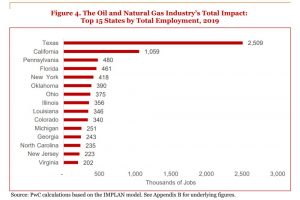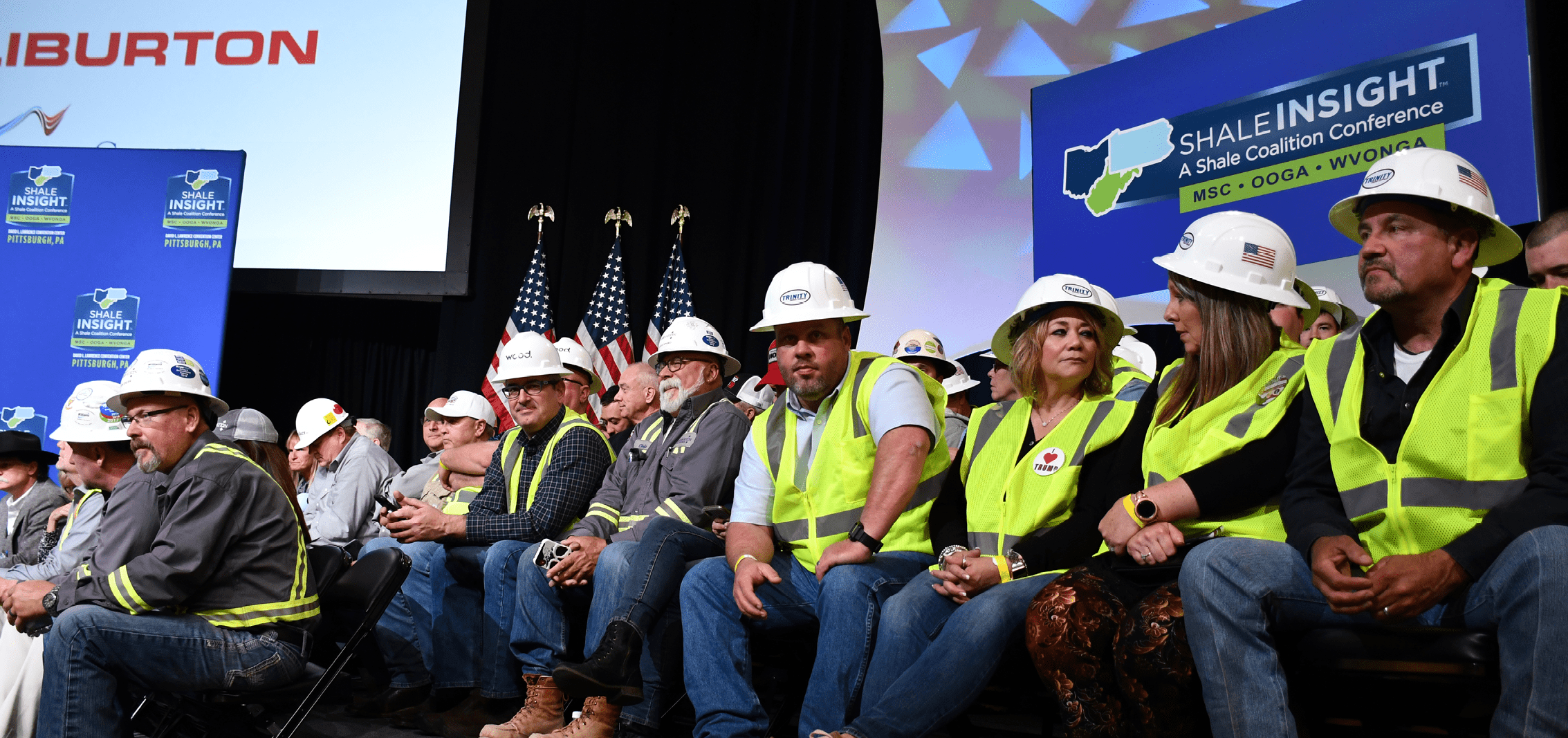Pennsylvania shale is key driver of job creation and sustained economic growth for Pennsylvania, with the state’s natural gas and oil industry contributing more than $78.3 billion in economic impact, paying roughly $40.4 billion in wages, and supporting more than 480,000 direct and indirect jobs in the state in 2019, new PricewaterhouseCoopers (PwC) data reveals.
Nationally, PwC estimates 11.3 million jobs are tied to the industry, having an overall $1.7 trillion impact on U.S. GDP. This accounted for nearly 8% of total U.S. GDP in 2019.
These numbers demonstrate the true benefits domestic shale development – which in Pennsylvania, is primarily driven by natural gas – delivers to the Commonwealth and the U.S. economy, as well as the good-paying job opportunities created by the region’s natural resources.
Moreover, it offers perspective on the fundamental role abundant, affordable, clean energy is to supporting other key sectors of our economy, such as manufacturing, agriculture, and industrial development. According to the report commissioned by API, in 2019 the entire American natural gas and oil industry supply chain:
- Supported more than 11.3 million total jobs (5.6% of total U.S. employment)
- Produced $892.7 billion in labor income, (6.8% of the U.S. national labor income)
- Supported nearly $1.7 trillion to U.S. gross domestic product (7.9% of the national total)
- Generated an additional 3.5 jobs elsewhere in the U.S. economy for each direct job in the U.S. natural gas and oil industry
In Pennsylvania, there are more than 102,000 direct jobs tied to the industry – referring to the production, transportation, and end use distribution workers involved in the upstream, midstream, and downstream sectors. Across the entire industry supply chain (think service companies, truck drivers, and construction workers), Pennsylvania natural gas supports 480,000 jobs statewide.
According to PwC, these can be broken down to:
- 102,460 natural gas and oil jobs
- 200,210 jobs in the service industry
- 27,750 jobs in the manufacturing sector
- 39,230 wholesale and retail jobs
- 21,900 working in construction
- 27,140 jobs associated with transportation and warehousing
On the western side of the state, Shell’s petrochemical facility north of Pittsburgh – which will use abundant natural gas liquids from Pennsylvania, Ohio, and West Virginia for manufacturing – is a perfect example of how market-based investments and commonsense policies can leverage the region’s shale resources to spur additional growth.
In fact Ravago, an international recycling and distribution group, just set up shop in Monaca to grow its company of roughly 7,000 employees by doing business with the Shell facility. While Ravago will initially employ10 people, the company intends to expand.

As the second largest producer of natural gas in the country, Pennsylvania’s energy workforce ranks third for total employment, and leads among Appalachian-producing states with Ohio supporting 375,000 and West Virginia with 82,000 jobs, according to the PwC report.
These overwhelming economic and labor benefits are why Pennsylvania has one of the strongest local economies in the region. As a new Cleveland State University report highlights, “the rise of fracking has fueled the Pittsburgh economy.”
And, with Pennsylvania natural gas companies providing roughly $40 billion in wages throughout 2019, it’s no wonder working on natural gas and oil projects is the favored choice of union workers, national North Atlantic Building Trades Union (NABTU) surveys found.
Maintaining and expanding Pennsylvania’s robust energy workforce – ranging from engineers, to the trades, to researchers – and correlating economic impact, has become a top priority for the post-pandemic economy.
As these community and economic recovery plans are carefully weighed and implemented at the state and federal levels, PwC and API’s report reinforce the importance of leveraging our state and region’s abundant shale resources, skilled and ready workforce, and world-class research and development institutions for additional downstream and manufacturing opportunities and the long-term prosperity that these projects can deliver.
Congressman Conor Lamb (D, Pa. – 17) recently highlighted these Marcellus Shale-fueled opportunities Pennsylvania has for economic growth, because “we have a combination of resources no one else has: steelmaking expertise, abundant natural gas, and world-class researchers at both (the National Energy Technology Laboratory) and the universities.”





